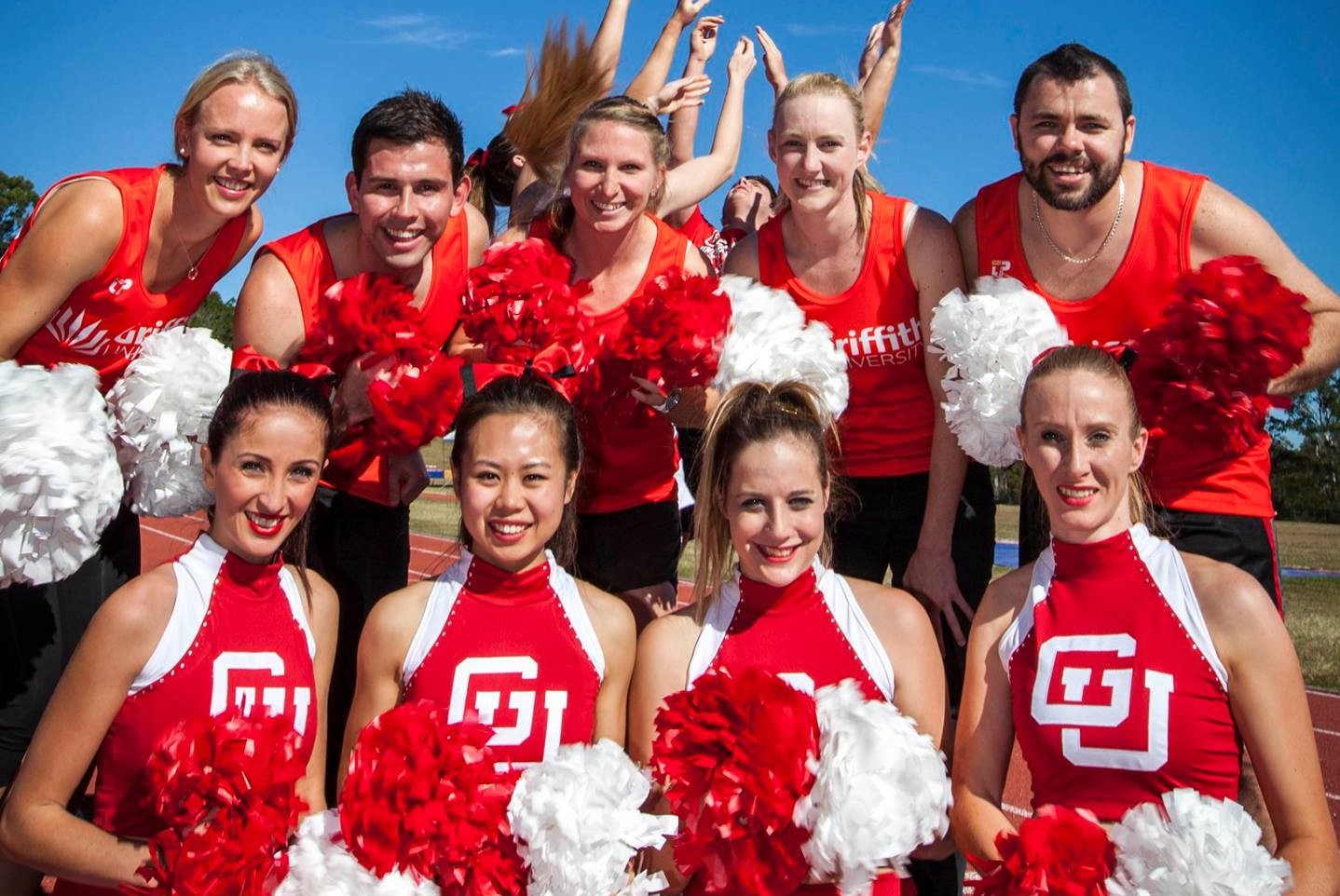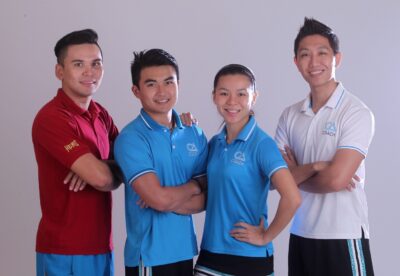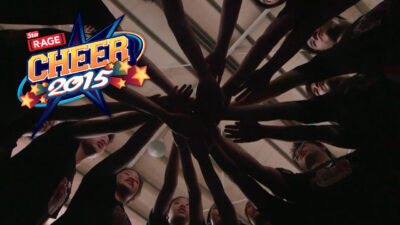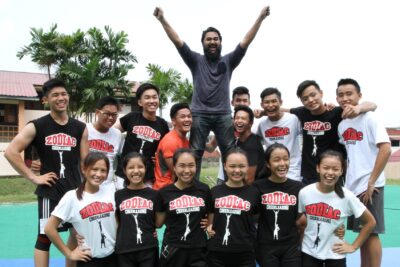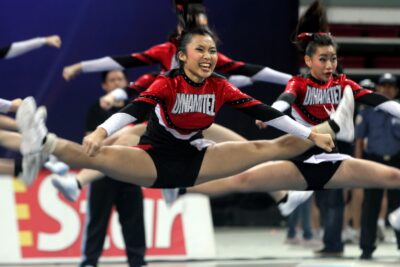By NAVEENA JAMES
alltherage@thestar.com.my
DURING an American university football game in 1898, a student named Johnny Campbell jumped over the fence of the field to rally his favourite team to victory. That historic moment marked the start of college cheerleading.
Since then, college cheerleading has become a popular sport in the United States and across other nations. According to Karl Olson, the Secretary General of the International Cheer Union (ICU), there are approximately 2,100 colleges in the US, of which an estimated 1,800 have cheerleading teams.
Top teams in the US include those from the University of Kentucky and Morehead State University, which have won over 20 titles in various national championships. The National Championship, hosted by the Universal Cheerleaders Association is by far the most prestigious college cheerleading championship in the country.
In the United Kingdom, college cheerleading is a lot more popular than high school cheerleading and an all-college competition – BCA University Nationals – has been organised since 2011. Last year, over 100 teams took part in the nationals!
Australian college cheerleading has also picked up pace, with many colleges and universities having their own cheerleading squads, beginning with Griffith University in 2005.
Although there is no all-college competition in Australia, teams compete in open categories in national competitions like the Scholastic National Championship.
In 2014, Monash Mystics from Monash University became the first Australian team to compete in the World University Cheerleading Championships.
In Asia, on the other hand, college cheerleading is still budding, with countries like Taiwan and Singapore leading the pack, having had at least a decade’s worth of history with the sport. This year, Taiwan made Asia proud when two Taiwanese college cheerleaders won gold for the second consecutive year at ICU’s World University Cheerleading Championship.
In Malaysia, the very first college team, Legacy All Stars from HELP University, was formed just two years ago. As of 2015, there are an estimated six college teams across more than 500 tertiary institutions.
Though Malaysian college cheerleading is relatively new, there are some promising teams like Alpha Prime from IACT College, Legacy All Stars and Sunway University Cheerleading Team (SUC), which won the gold medal at the Asia Cheerleading Invitational Championship (ACIC) early this year – not bad for a newcomer!
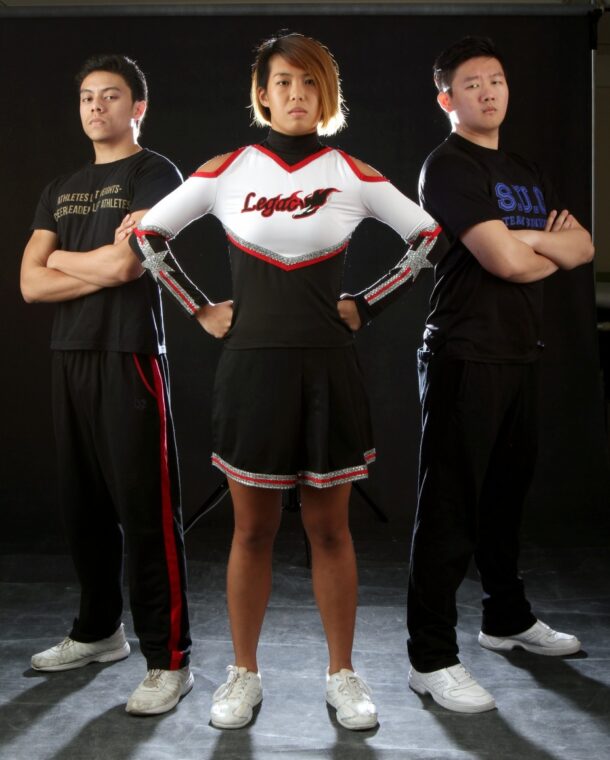
Cheer power: Captains Danial (left), Loke Cheng Mun (centre) and Kong are revolutionising Malaysian cheerleading with college teams! They will be competing head-to-head in CHARM Cheerleading Championship’s very first college division this coming August! – Photo: YAP CHEE HONG/The Star
Locally, most college teams take part in CHARM Cheerleading Championship’s open category but this year, the championship will be introducing an all-college division for the very first time. This is great news for the teams as they are already competing at a higher level of difficulty (level five and six) than high school cheerleaders, said Alpha Prime’s team captain, Muhammad Danial Syafiq.
How hard is it to join a college cheerleading team? In America, getting into a college cheerleading team is highly dependant on the college or university’s existing cheer programme. “The higher the level of the college team’s programme, the higher an athlete’s skill must be to make the team,” said Olson.
Technique, skill and personality are important when one presents at an audition. “In the end though, it all depends on what the advisor is looking for to ultimately make it into the team,” said Maria Cabande of Loyola Marymount University, Los Angeles, who was also part of team USA.
Things are a little different in Asia as sportsmanship is prized over skill, partly because most college cheerleaders do not have prior cheerleading experience. “As long as they are committed, with proper strength training, we can prepare them to run an entire routine,” says Sen Poh Kang, 23, captain of NTU Aces of Singapore’s Nanyang Technological University.
Even though college cheerleading has grown across the world, a lingering question remains: can cheerleaders make a career out of the sport?
“Personally, I do think people can and do make a career from being professional cheerleaders in America,” said Cabande.
In the US, the prospects are better as you could also cheer for big sports teams like the Dallas Cowboys and Tampa Bay Buccaneers.
Unfortunately, these career opportunities aren’t as evident in other countries.
“Unless you are performing on a similar scale as the Dallas Cowboys games, I don’t think one should consider forming a career out of it in the UK,” said Mia Viste, from the Heriot Watt Cheerleading Club of Heriot Watt University, Edinburgh.
Dickson Kong from SUC Malaysia also thinks cheerleaders don’t have many options beyond college, as cheerleading coaches can be paid as little as RM5 an hour. Regardless of the sport’s career potential, college cheerleaders remain passionate about it, often putting their hearts and souls into every performance.
“If people threw out the stereotypes of cheerleaders, replacing the images of pom-poms and short skirts with death-defying skills, the world could then embrace and understand our passion,” said Maddi Rose, captain of Australia’s Griffith University Cheerleading Club.
Did you know?
Taiwan’s biggest all-college cheerleading championship, University Cheer Cup (UCC) was first held in 2000.
Today, there are approximately 70 college teams in Taiwan, with Shih Hsin University’s team emerging champions of UCC 2015.
According to Karl Olson, the Secretary General of the International Cheer Union (ICU), most of the members of the USA National cheerleading team in the past few years have come from US college programmes.
Even though there are more college cheerleading teams in the UK now, it is still not recognised by the British University College Sport (BUCS), the governing body for university sports in the UK.
Team NTU Aces from Nanyang Technological University placed second at the Asian Cheerleading Invitational Championships (ACIC) 2015, the best placing that any Singaporean university has achieved in cheerleading.
Organised annually by Active Sports Enterprise and supported by Cheerleading Association (Singapore), ACIC is one of the biggest international competitions in Asia.
The World Cheerleading Championships (WCC), held by the ICU every year, is the biggest international cheerleading competition in the world. It is every college cheerleader’s dream to emerge victorious at the WCC.

